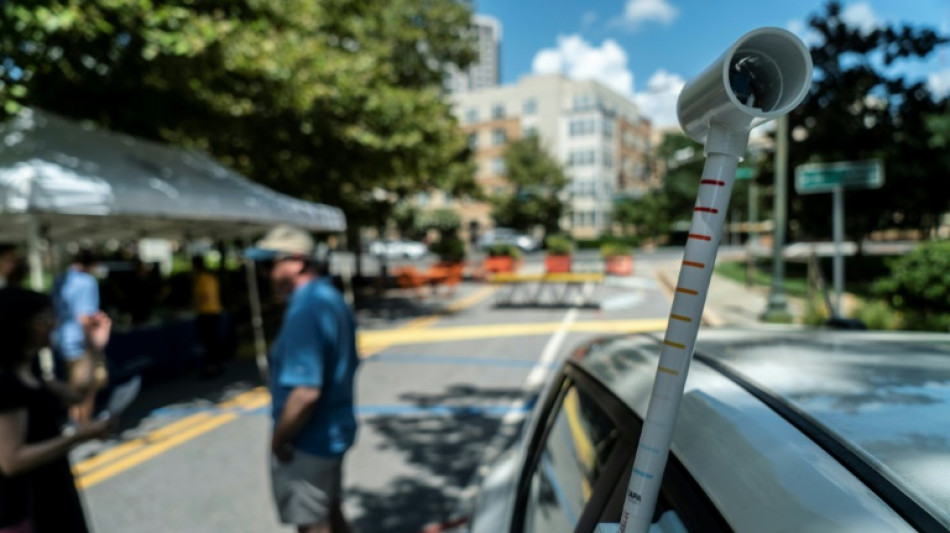
-
 Russell eager to face Scotland team-mates when Bath play Edinburgh
Russell eager to face Scotland team-mates when Bath play Edinburgh
-
Undav scores again as Stuttgart sink Frankfurt to go third

-
 Fuming French farmers camp out in Paris despite government pledges
Fuming French farmers camp out in Paris despite government pledges
-
Man Utd appoint Carrick as manager to end of the season

-
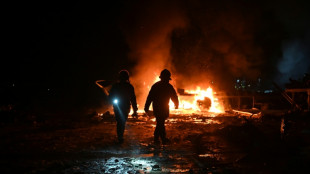 Russia strikes power plant, kills four in Ukraine barrage
Russia strikes power plant, kills four in Ukraine barrage
-
France's Le Pen says had 'no sense' of any offence as appeal trial opens

-
 JPMorgan Chase reports mixed results as Dimon defends Fed chief
JPMorgan Chase reports mixed results as Dimon defends Fed chief
-
Vingegaard targets first Giro while thirsting for third Tour title

-
 US pushes forward trade enclave over Armenia
US pushes forward trade enclave over Armenia
-
Alpine release reserve driver Doohan ahead of F1 season

-
 Toulouse's Ntamack out of crunch Champions Cup match against Sale
Toulouse's Ntamack out of crunch Champions Cup match against Sale
-
US takes aim at Muslim Brotherhood in Arab world

-
 Gloucester sign Springbok World Cup-winner Kleyn
Gloucester sign Springbok World Cup-winner Kleyn
-
Trump tells Iranians 'help on its way' as crackdown toll soars

-
 Iran threatens death penalty for 'rioters' as concern grows for protester
Iran threatens death penalty for 'rioters' as concern grows for protester
-
US ends protection for Somalis amid escalating migrant crackdown

-
 Oil prices surge following Trump's Iran tariff threat
Oil prices surge following Trump's Iran tariff threat
-
Fashion student, bodybuilder, footballer: the victims of Iran's crackdown

-
 Trump tells Iranians to 'keep protesting', says 'help on its way'
Trump tells Iranians to 'keep protesting', says 'help on its way'
-
Italian Olympians 'insulted' by torch relay snub

-
 Davos braces for Trump's 'America First' onslaught
Davos braces for Trump's 'America First' onslaught
-
How AI 'deepfakes' became Elon Musk's latest scandal

-
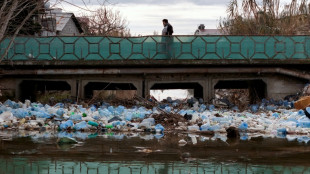 Albania's waste-choked rivers worsen deadly floods
Albania's waste-choked rivers worsen deadly floods
-
Cancelo rejoins Barca on loan from Al-Hilal

-
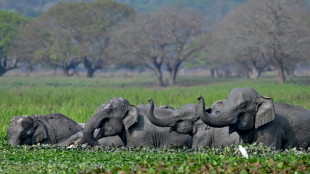 India hunts rampaging elephant that killed 20 people
India hunts rampaging elephant that killed 20 people
-
Nuuk, Copenhagen mull Greenland independence in Trump's shadow

-
 WHO says sugary drinks, alcohol getting cheaper, should be taxed more
WHO says sugary drinks, alcohol getting cheaper, should be taxed more
-
Arteta urges Arsenal to learn from League Cup pain ahead of Chelsea semi

-
 Davos elite, devotees of multilateralism, brace for Trump
Davos elite, devotees of multilateralism, brace for Trump
-
Spanish star Julio Iglesias accused of sexual assault by two ex-employees

-
 Trump's Iran tariff threat pushes oil price higher
Trump's Iran tariff threat pushes oil price higher
-
US consumer inflation holds steady as affordability worries linger

-
 Iran to press capital crime charges for 'rioters': prosecutors
Iran to press capital crime charges for 'rioters': prosecutors
-
Denmark, Greenland set for high-stake talks at White House
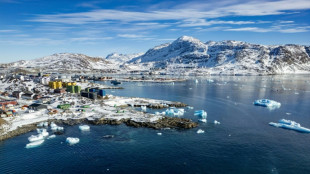
-
 Iranian goes on trial in France ahead of possible prisoner swap
Iranian goes on trial in France ahead of possible prisoner swap
-
Cold winter and AI boom pushed US emissions increase in 2025
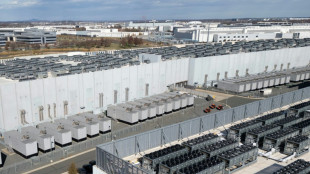
-
 Hong Kong activist investor David Webb dies at 60
Hong Kong activist investor David Webb dies at 60
-
Try to be Mourinho and I'll fail: new Real Madrid coach Arbeloa

-
 Vingegaard targets Giro d'Italia and Tour de France double
Vingegaard targets Giro d'Italia and Tour de France double
-
South Korean prosecutors demand death penalty for ex-leader Yoon

-
 Iwobi hails Nigerian 'unity' with Super Eagles set for Morocco AFCON semi
Iwobi hails Nigerian 'unity' with Super Eagles set for Morocco AFCON semi
-
Le Pen appeal trial opens with French presidential bid at stake

-
 Iran ex-empress urges security forces to join protesters
Iran ex-empress urges security forces to join protesters
-
Sudan 'lost all sources of revenue' in the war: finance minister to AFP

-
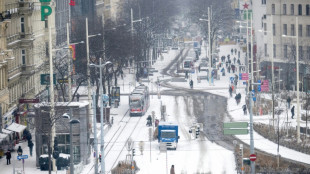 Freezing rain hampers transport in Central Europe
Freezing rain hampers transport in Central Europe
-
Nuuk, Copenhagen cautiously mull Greenland independence

-
 'Proving the boys wrong': Teenage racers picked for elite driver programme
'Proving the boys wrong': Teenage racers picked for elite driver programme
-
Mbappe absent from training as Arbeloa takes charge at Real Madrid

-
 Iran worries push up oil price as world stocks diverge
Iran worries push up oil price as world stocks diverge
-
Volvo Cars pauses battery factory after fruitless partner search

| RBGPF | 1.13% | 82.5 | $ | |
| RYCEF | -0.06% | 17.28 | $ | |
| BP | 2.81% | 35.405 | $ | |
| CMSC | 0.34% | 23.39 | $ | |
| NGG | -2.19% | 78.05 | $ | |
| BTI | 1.63% | 56.605 | $ | |
| AZN | 0.76% | 94.348 | $ | |
| SCS | 0.12% | 16.14 | $ | |
| GSK | -0.74% | 50.02 | $ | |
| RELX | -1.33% | 42.21 | $ | |
| RIO | 1.06% | 83.77 | $ | |
| VOD | -2.85% | 13.175 | $ | |
| JRI | -0.07% | 13.8 | $ | |
| BCC | 0.84% | 83.66 | $ | |
| CMSD | -0.05% | 23.852 | $ | |
| BCE | -0.68% | 23.68 | $ |

US communities are mapping heat islands to boost climate resilience
The phone's home screen shows 90 degrees Fahrenheit (32C) in Silver Spring, a suburb of Washington, on a mid-August day. But the reality is more complex -- in terms of heat exposure, not all parts of the city are equal.
Maria Velez, 53, knows she is lucky to live next to a creek. A stone's throw from her house, other neighborhoods with small apartment buildings are far more built-up and much less green.
That is the perfect recipe for creating heat islands, recording much higher temperatures sometimes across just a few streets.
The phenomenon is becoming more and more dangerous because of the global climate crisis.
In the United States –- where hurricanes, tornadoes and floods are a fact of life –- the meteorological phenomenon that kills the most is none other than heat.
This is why Velez, a resident concerned about the subject, chose to participate in a campaign aimed at mapping these heat islands in Montgomery County, where she lives, just to the north of the American capital.
The initiative is headed by the National Oceanic and Atmospheric Administration (NOAA), which for six years has made it possible to study some 70 counties across the country, with the help of residents.
"I signed up right away," Velez, a criminology professor, told AFP. "I thought this is exactly what the county should be doing. We should be learning about what's going on with climate change, and what the impacts are."
She and her husband hang a sensor, which looks like a can on the end of a rod, out the passenger side of their gray family car. Once turned on, the device records the temperature, humidity, time and its exact position every second.
The couple was assigned a route of about 10.6 miles (17 km), to be covered at no more than 35 miles per hour (55kph), covering a large part of the city.
Within an hour, they return to their starting point, where county employees await them, retrieving the sensor and noting any difficulties encountered -- in their case, a failed roundabout exit that led them to make the turn twice.
T-shirts with the words "Street Scientist" are handed out to thank the volunteers.
- Historic inequalities -
In total, more than a hundred people took part in the experiment that day: 57 teams of two traveled 19 different routes, covering around 200 square miles.
Temperature was measured along each route three times during the day: at 6:00 am, 3:00 pm, and 7:00 pm.
The program was a success that surprised even its organizers: nearly 600 residents had registered to participate, meaning 500 had to be refused.
Those chosen were offered a few tens of dollars for their time, but more than 60 percent did not take the money.
The sensors were then sent to the partner company, CAPA Strategies, which in a few weeks will analyze the data and transform it into detailed maps, indicating the hottest spots.
"It's going to tend to be low income communities and communities of color that are most impacted by this," Gretchen Goldman, a climate scientist with White House Office of Science and Technology Policy, who was present for the occasion, told AFP.
An important study on Richmond, Virginia, showed the impact that old discriminatory policies still have.
"Redlining," which saw banks limit housing loans to residents of certain poor, Black neighborhoods marked with a red line on maps, reinforced segregation -- with hotter communities today as a result.
"We were able to see the impact of that discriminatory policy even decades and decades later," said Goldman.
- Transforming cities -
Adapting to increasingly extreme heat episodes, fueled by climate change, is becoming essential.
Today, the number of days above 90F in Montgomery County is about 19 per year. In 2050, it will be 70 days, according to Ken Graham, director of the National Weather Center, which is part of NOAA.
Urban heat islands form because the sun's heat is absorbed more by impervious surfaces such as concrete, roads, buildings, than by grass or water, for example.
Planting trees is therefore essential, but other solutions are also being developed, such as ultra-reflective paints.
Thanks to the mapping campaigns carried out in recent years, "there's been parks that have been built in some of these communities, there's been changes in roofing, a dark roof versus a light roof," said Graham.
That's just a taste of the future we need to prepare for, he said. "It's going to take all of us to be a climate ready nation. And if we work together, we can do it."
H.Jarrar--SF-PST



